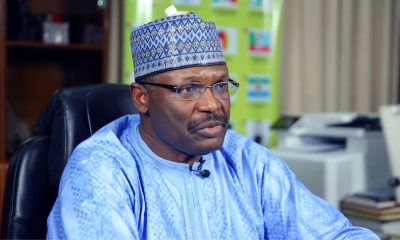Oil & Energy
MOMAN Seeks Representation In PIA Implementation Committee

The Major Oil Marketers Association of Nigeria, MOMAN, has called on the federal government to also appoint stakeholders in the sector to be part of the PIA implementation committee.
The call was made while presenting its newly appointed Chairman, Olumide Adeosun, CEO, Ardova Plc to newsmen, last week.
Adeosun while presenting his agenda for the Association, said inclusion of stakeholders in the PIA implementation committee, would make for more robust and balanced deliberation as the Act begins its six months gestation period.
“My appointment as Chairman of our respected association commences just as the Petroleum Industry Act has been encoded into law, marking the beginning of a new era for the downstream sector. As an association, this means that we must be at the forefront of unravelling the opportunities that come with operating in the free-market structures that have been created by the PIA, whilst continually advocating for changes that positively impact our industry and the Nigerian economy at large.
“I assure you that MOMAN will continue to be at the fore of both private and public partnership with the government in terms of discussing policies that would move the downstream forward. We enjoin the federal government to also include stakeholders in the sector, including the downstream which we represent, in the implementation committee of the PIA as this would give us the opportunity to make our input,” he said.
Adeosun succeeds Mr. Tunji Oyebanji, CEO, 11 Plc, who was Chairman from 2019-2021. His tenure as Chairman of the Association is with effect from September 01, 2021.
He enjoined the government to move the downstream sector towards full deregulation.
“I feel very privileged for the opportunity to serve as the Chairman of MOMAN in such an exciting time for our industry.
“As a collective, we are at the cusp of new beginnings for the sector and I envisage that as we move towards less price-controlled reality, our journey will make for interesting times,” he said.
His tenure which commenced on September 01, 2021, will run for two years, concluding in September of 2023.
“Making the transition to a fully competitive pricing oriented downstream sector will require the collective engagement and resolve of all stakeholders. I assure you that MOMAN will continue to be at the forefront in bridging the Government and private sector in ensuring that Nigeria has a viable energy sector. We will continue sustained engagement and the creation of initiatives that will make the implementation of this law a shared success for all concerned parties.”
He said the world is changing rapidly and that the oil and gas industry has been proven to be one of the most exposed to the winds of this change.
“The breakout of the Covid-19 pandemic and the ensuing measures designed to curb its spread – lockdowns and work from home – have shaped a new reality that challenges our operating structures. Also, this period of restrained movements has seen much of the world accelerate their drive towards zero or near zero utilisation of hydrocarbon-based energy sources. A clear indication that the days of hydrocarbons might be fewer than we have projected.
“We must adapt and evolve to prevent working wide-eyed into extinction. The gains to be had from operating in a PIA reality must be channeled towards pivoting the way we operate. This is the only way we can remain globally competitive. Our opportunity to make a first step towards this evolution will be found in Liquefied Petroleum Gas (LPG). The Federal Government’s push to increase nationwide usage of gas is commendable and is an initiative we should all support and take advantage of. The benefits to expanding our collective capacity in retailing gas extends beyond immediate additions to our bottom-line, as the impact on our environment, our communities and the larger economy make for a better future for us all,” he said.
Oil & Energy
No Subsidy In Oil, Gas Sector — NMDPRA

Oil & Energy
‘Nigeria’s GDP’ll Hit $357bn, If Power Supply Gets To 8,000MW’

Oil & Energy
NEITI Blames Oil, Gas Sector Theft On Mass Layoff

-
Politics1 day ago
2027: Bayelsa APC Adopts Tinubu As Sole Candidate … As Lokpobiri, Lyon Shun Meeting
-
Sports1 day ago
GOtv Boxing Night 34 holds Dec. in Lagos
-

 Politics1 day ago
Politics1 day agoAlleged Smear Campaign Against Yakubu, CSOs Demand Apology From Uzodimma
-
Politics1 day ago
2027: Jega Condemns Premature Campaigns, Blames Elected Officials
-
Politics1 day ago
Why INEC Can’t Punish Politicians For Early Campaigns – Yakubu
-
Sports1 day ago
WCQ: NFF Denies Post Match Statement
-
Politics1 day ago
Stopping Natasha’s Resumption Threatens Nigeria’s Democracy – ADC
-
Sports1 day ago
Nigerian cricket coaches undergo ICC Training

